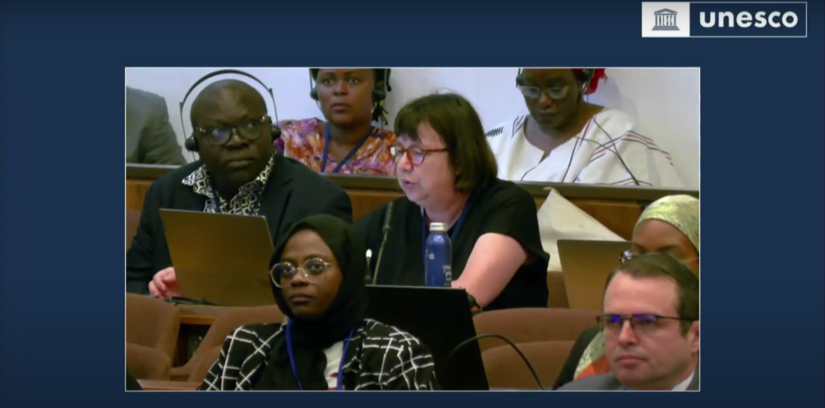
On the occasion of the 10th session of the Conference of Parties (COP) to the 2005 Convention on the Protection and Promotion of the Diversity of Cultural Expressions, the 158 Parties committed to advancing the development of a legally binding protocol on the digital environment by doing an analysis on the desirability, technical and legal aspects of an additional Protocol and other legal options . They also decided to update the operational guidelines for implementing the Convention in the online space, in order to better reflect the impact of generative artificial intelligence (AI) and large-scale AI models on the cultural and creative industries.
View the resolutions of the COP
The Coalition for the Diversity of Cultural Expressions (CDCE) welcomes these two major decisions, which demonstrate a clear political will to renew the Convention’s ambition and ensure its continued relevance in the face of contemporary technological challenges. Twenty years after its adoption, the Convention remains as pertinent as ever, but requires concrete actions to safeguard cultural diversity in the globalized digital world.
The CDCE, which has been advocating for the adoption of a protocol to the Convention, will continue to closely monitor and actively contribute to the work of the Parties. In 2027, the Parties will consider the conclusions of a feasibility study on the legal, technical, and political dimensions of such an instrument. Should they decide to proceed, an additional protocol could be adopted as early as 2029, marking a significant milestone for cultural policies in the digital age.
“The presence of Ministers Guilbeault and Lacombe at this 10th Conference of Parties is a strong sign of their deep commitment to the 2005 Convention and their determination to renew its effectiveness in the digital environment. Their leadership and dynamism were instrumental in reaching a consensus, particularly in support of continuing work that could lead to an additional protocol to the Convention, and we commend their joint efforts,” said Hélène Messier, Co-Chair of the CDCE and President and CEO of the Quebec Media Production Association (AQPM).
Regarding the revision of the operational guidelines, the CDCE sees this as a strategic opportunity to reaffirm the Convention’s founding principles while adapting them to the dynamics of the digital age. It encourages the Parties to incorporate the following principles into the revision:
- Principle of protecting and promoting the diversity of cultural expressions
- Principle on measuring the impact of algorithmic and editorial recommendations
- Principle of transparency regarding the use of data by generative AI systems
- Principle of the uniqueness of human creativity
- Principle of equitable and inclusive access
- Principle of the right to fair remuneration for creators and rights holders
- Principle of improving the socio-economic conditions of creators and ensuring the financial viability of local and independent cultural ecosystems
The CDCE nonetheless emphasizes that, to date, the monitoring mechanism for the operational guidelines in the digital environment — which were adopted in 2017 — has only been activated by a very small number of Parties. This lack of systematic implementation limits any possibility for rigorous evaluation. It is therefore essential that this revision be accompanied by firm commitments, adequate implementation tools, and transparent accountability mechanisms.
The CDEC also welcomes the adoption of the implementation plan for the recommendations of the Intergovernmental Reflection Group on preferential treatment. It hopes these measures will help advance the implementation of Article 16 of the Convention, which aims to strengthen North-South and South-South cooperation and promote more balanced exchanges of cultural goods and services—an article that remains insufficiently applied to date.
Finally, the CDCE strongly welcomes the decision by the Parties to now hold the Civil Society Forum during the session of the Intergovernmental Committee preceding the COP. This change will strengthen the impact of civil society contributions by facilitating the emergence of coordinated, realistic positions that reflect the diversity of cultural actors. The CDCE remains convinced that the richness of the debates lies in the plurality of voices working to implement the Convention, each bringing insights shaped by the communities they represent.
- Related publications
-